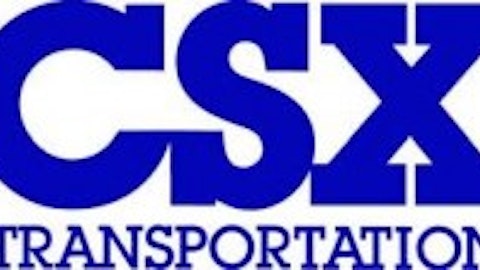
However, in contrast to Ackman, there are many traders who are quite eager to bet against companies based purely on the belief that they are “overvalued.” These companies include Zillow Inc (NASDAQ:Z), OpenTable Inc (NASDAQ:OPEN) and Lululemon Athletica inc. (NASDAQ:LULU).
Zillow has a short interest above 30% and a PE ratio near 290
The online real estate database has attracted the interest of rabid short sellers, who look at the company’s financials and are eager to bet against it. To be sure, Zillow trades at a nosebleed valuation: its price-to-earnings ratio (a comparison of its past earnings to its 
The company pays no dividend, and its forward PE of 66 (predicted future earnings compared to share price) is nearly double that of Facebook Inc (NASDAQ:FB)’s — a company that trades at a high valuation in its own right.
But valuation is really the only grounds short sellers have to fault the company; it faces no known regulatory issues, has not been criticized for its accounting, and no one has accused Zillow of breaking the law.
OpenTable has a short interest over 25% and trades with a PE of 59
Relatively speaking, OpenTable Inc (NASDAQ:OPEN) isn’t as overvalued as Zillow Inc (NASDAQ:Z). Its PE ratio of 59 is a far cry from Zillow’s 290, but still about three times greater than the S&P 500’s. Like Zillow, it pays no dividend.
OpenTable’s forward PE of 27 is less than half of Zillow Inc (NASDAQ:Z)’s. But its still much higher than Groupon Inc (NASDAQ:GRPN)’s 17 and Yahoo! Inc. (NASDAQ:YHOO)’s 18.
In addition to being relatively expensive on paper, OpenTable Inc (NASDAQ:OPEN) shares have performed tremendously and could be ripe for a pullback. In the last year alone, shares of OpenTable have traded up over 40%.
But again, like Zillow Inc (NASDAQ:Z), OpenTable has not been targeted for its accounting standards, legal violations, or regulatory issues.
Lululemon trades with a PE of 42 and has a short interest near 28%
Compared to NIKE, Inc. (NYSE:NKE), the established player in the sports apparel market, Lululemon is priced for perfection. Lululemon’s PE ratio of 42 is more than 50% higher than Nike’s ratio of 25. Its forward PE of 30 is also much higher than Nike’s 18. Lululemon’s price-to-book ratio, which is a measure of share price compared to the value of assets, is just less than three times that of Nike’s, at 13 and five, respectively.
Like OpenTable Inc (NASDAQ:OPEN), Lululemon Athletica inc. (NASDAQ:LULU) has appreciated rapidly: shares are up nearly 300% in the last three years.
Another hedge fund manager, David Einhorn, has been rumored to have bet against Lululemon. Einhorn isn’t afraid to short a stock based on valuation, and though he’s never come out against the company, his call against Chipotle Mexican Grill, Inc. (NYSE:CMG) based partially on excessive valuation is equally applicable to Lululemon Athletica inc. (NASDAQ:LULU).
Fund manager Whitney Tilson has publicly criticized Lululemon explicitly on the grounds of overvaluation. Tilson called Lululemon a “fine company” but “a company this overvalued will reward on the short side.”
Why doesn’t Ackman short on valuation?
In his interview with Value Investor, Ackman doesn’t give an exact reason for not shorting based on valuation, but it isn’t hard to guess why.
Shorting based purely on valuation involves a certain level of arrogance. Just because a company is overvalued, doesn’t mean that it can’t become more overvalued. For example, investors have literally been calling Amazon.com, Inc. (NASDAQ:AMZN) overvalued for more than a decade, yet the stock continues to defy the bears.
salesforce.com, inc. (NYSE:CRM) is another excellent example; as I’ve previously written, the company has been labeled overvalued since at least 2010, but continues to reward shareholders.
Even when the valuation call is correct, bears might not survive to profit. The aforementioned Tilson famously shorted Netflix, Inc. (NASDAQ:NFLX) during its incredible run over 2010 and 2011. But Tilson got cold feet and covered his short just a few months before the stock collapsed.
In the end, it’s important to realize that shorting on valuation is a dangerous game. It might be best for investors to stick to Ackman’s strategy: only short when there are fundamental reasons to doubt the company’s business model.
The article 3 Stocks Bill Ackman Wouldn’t Short originally appeared on Fool.com and is written by Salvatore “Sam” Mattera.
Copyright © 1995 – 2013 The Motley Fool, LLC. All rights reserved. The Motley Fool has a disclosure policy.



